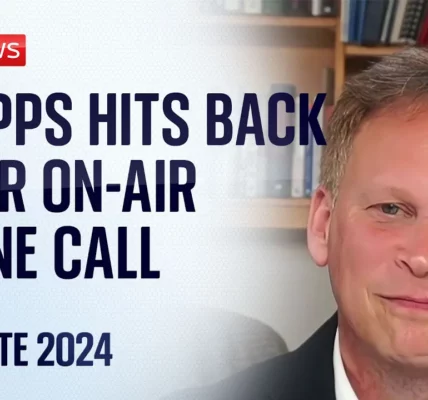UK Political Landscape: Key Insights Ahead of the General Election

As the UK approaches its general election, political tensions rise. This article explores the current state of affairs, including party strategies, public sentiment, and the implications of key figures in the political arena.
Introduction
The political climate in the UK is charged as parties prepare for the upcoming general election. With significant developments, including the Labour Party’s promises regarding the NHS and the Conservative Party’s struggle under Rishi Sunak’s leadership, the landscape is shifting rapidly. This article delves deeper into these dynamics, providing insights into the implications for voters and the potential outcomes of the election.
Current Political Climate
With just weeks to go before the election, the atmosphere is charged with uncertainty. The Conservative Party, led by Rishi Sunak, is facing a challenging landscape, while the Labour Party, under Keir Starmer, is positioning itself as a viable alternative. Recent public appearances by key figures, including the Prime Minister and the Princess of Wales, have brought additional focus to the political narrative.
Rishi Sunak’s Leadership
Rishi Sunak’s leadership has been under scrutiny, with many questioning his ability to rally support within the Conservative Party and the electorate. As the Prime Minister attends significant events like the Trooping the Colour, he faces a pivotal moment in his political career.
Labour’s Promises and Public Response
Keir Starmer has made ambitious promises regarding the NHS, aiming to tackle the backlog of treatments. This includes plans to increase appointments and address funding issues. However, public skepticism remains regarding the feasibility of these proposals, especially in light of ongoing funding discussions.
Public Sentiment and Key Issues
Public opinion is a significant driver of election outcomes. Recent polls indicate a shift in voter preferences, with the Labour Party gaining momentum. Key issues influencing voter sentiment include the NHS, tax policies, and the overall economic condition of the country.
The NHS Debate
The National Health Service remains a cornerstone of British political discourse. As Labour promises to improve NHS services, voters are increasingly vocal about their experiences and expectations. The public’s demand for increased funding highlights a critical area where both major parties must tread carefully.
Tax Policies and Economic Concerns
The debate around tax policies is heating up, with voters expressing a desire for improved public services without the burden of increased personal taxes. This sentiment is echoed by political commentators, who emphasize the need for parties to address economic concerns honestly.
Voter Disillusionment
Disillusionment with traditional parties is palpable, as many voters express frustration with perceived empty promises. This sentiment has created an opening for alternative parties, including Reform UK, which is gaining traction among right-leaning voters.
Party Strategies Moving Forward
As the election date approaches, both major parties are adjusting their strategies to capture voter attention and support.
Conservative Strategy
The Conservatives appear to be focusing on shifting the narrative away from their leadership struggles, attempting to paint Labour as a risky choice. This approach aims to emphasize the potential dangers of a Labour government, particularly regarding economic policies.
Labour’s Counter Strategy
Labour’s strategy involves emphasizing their commitment to public services, particularly the NHS. By presenting themselves as the party of reform, they aim to appeal to disillusioned voters seeking real change.
Engaging the Electorate
Engagement with the electorate is crucial for both parties. Initiatives like community outreach and public forums will be vital as candidates seek to connect with voters on pressing issues. The focus on local constituencies and addressing specific community concerns will play a significant role in shaping election outcomes.
Conclusion
The upcoming general election is poised to be a pivotal moment in UK politics. With key issues like the NHS and economic policy at the forefront, voter sentiment is more critical than ever. As both major parties navigate this complex landscape, their ability to engage with the electorate and address pressing concerns will ultimately determine their success. Voters are urged to stay informed and participate actively in the electoral process to shape the future of the country.
For more insights into the election and its implications, visit our related articles on the UK political landscape and party strategies.
“`




